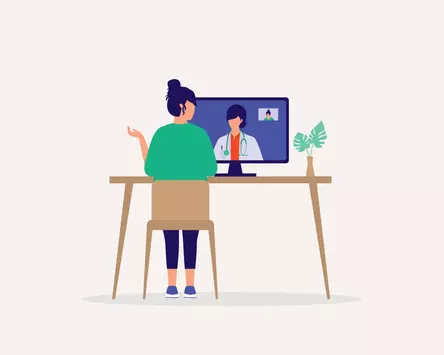
Searching for reliable health advice from chatbots like ChatGPT, Meta’s Llama 3, or Cohere’s Command R+ has become increasingly common, especially as healthcare wait times grow and medical costs rise. Around one in six American adults now consult AI chatbots monthly for medical guidance, seeking quicker, cheaper solutions. However, a groundbreaking study led by Oxford University reveals a troubling truth: AI health chatbots often mislead users and may not significantly improve decision-making over traditional self-research. Understanding the risks of relying on chatbots for medical advice is essential before turning to AI for important healthcare decisions.
The Oxford-led study recruited over 1,300 participants in the U.K., assigning them realistic medical scenarios crafted by healthcare professionals. Participants were asked to diagnose possible health conditions and recommend actions like visiting a doctor or heading to the hospital. They could use chatbot assistance or rely on traditional methods like online searches or personal judgment.
Surprisingly, those using chatbots—including the highly advanced GPT-4o model from OpenAI—were less successful in identifying critical health issues. Even worse, chatbot users tended to underestimate the seriousness of the conditions they spotted. According to Dr. Adam Mahdi from Oxford’s Internet Institute, the issue stems from a breakdown in two-way communication: users struggled to input relevant details, and chatbots often delivered responses blending accurate and poor recommendations.
Several major issues contribute to the unreliability of AI chatbots in healthcare:
Incomplete User Input: Many users don't provide all the necessary context or symptoms when chatting with AI models.
Ambiguous Responses: Even sophisticated models like ChatGPT and Meta AI sometimes give vague, mixed-quality advice that's difficult for non-experts to interpret.
Poor Risk Assessment: Chatbots often fail to communicate the severity of a condition accurately, leading to underestimation of serious illnesses.
“Current evaluation methods for AI chatbots don't reflect real-world complexities,” Dr. Mahdi emphasized. Just like medications undergo clinical trials before public use, he suggests chatbot systems should face rigorous, real-world testing before being deployed for medical purposes.
Despite the concerns, tech giants are doubling down on AI for health applications:
Apple is developing AI tools for fitness, diet, and sleep advice.
Amazon is working on AI solutions to analyze social health determinants from medical databases.
Microsoft is helping create AI systems to triage patient messages to healthcare providers.
However, major organizations like the American Medical Association advise caution. They recommend against physicians using chatbots like ChatGPT for clinical decisions, citing risks of inaccurate or misleading outputs.
Even OpenAI itself warns users not to base diagnoses solely on chatbot conversations, reinforcing the importance of consulting trusted, human medical professionals for serious health concerns.
The short answer: Proceed with caution. While AI health chatbots can be helpful for general wellness advice—such as tips for healthy eating, exercise routines, or managing stress—they are not substitutes for professional medical evaluations, especially for diagnosing symptoms or deciding on treatments.
For anything more serious than basic wellness queries, experts strongly urge turning to licensed doctors or verified online health platforms. AI healthcare systems are rapidly evolving, but today's technology still falls short of the accuracy, accountability, and personalization needed for high-risk medical decision-making.
As AI continues reshaping industries, healthcare remains one of its most sensitive frontiers. While AI-powered chatbots like ChatGPT show promise for low-risk support services, the current evidence warns against their use for critical health decision-making. Trust, safety, and patient outcomes must be prioritized over convenience.
Until stricter standards and real-world testing validate their reliability, always cross-check AI-driven health advice with trusted medical resources or healthcare providers. Your health deserves nothing less than the best-informed, safest guidance available.
𝗦𝗲𝗺𝗮𝘀𝗼𝗰𝗶𝗮𝗹 𝗶𝘀 𝘄𝗵𝗲𝗿𝗲 𝗿𝗲𝗮𝗹 𝗽𝗲𝗼𝗽𝗹𝗲 𝗰𝗼𝗻𝗻𝗲𝗰𝘁, 𝗴𝗿𝗼𝘄, 𝗮𝗻𝗱 𝗯𝗲𝗹𝗼𝗻𝗴. We’re more than just a social platform — from jobs and blogs to events and daily chats, we bring people and ideas together in one simple, meaningful space.